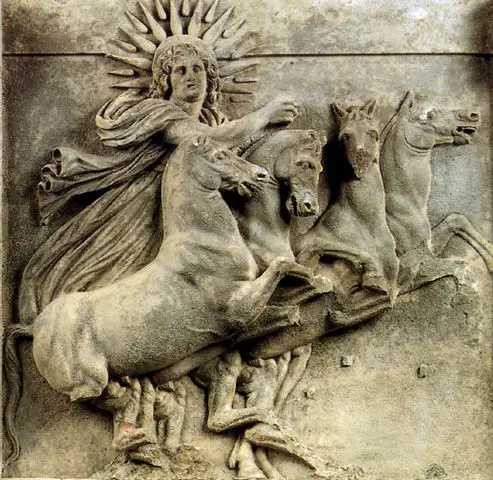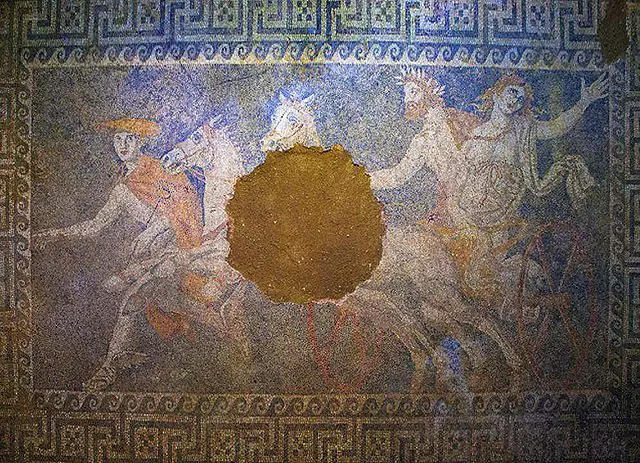| Born | 108 BC |
| Died | 62 BC |
| Famous Quote | “To like the same things and to dislike the same things, only this is a strong friendship” |
| Known For | Attempting to overthrow the Roman Republic, One of the most ambitions Romans of the late Roman Republic |
| Region of World | Rome, Italy, 1st century BC |
| Further Reading | The 3 Ways Cicero Influenced The Development of The U.S |
In 63 BC one of the most famous events of the late Roman Republic happened, the Catilinarian conspiracy. This conspiracy was undertaken by the ambitious upstart politician Lucius Sergius Catilina, known today simply as Catiline.
Cataline’s plot to overthrow the Republic was discovered by the famous politician Cicero who would accuse Cataline of four things. First, Cataline was accused of lying to the Roman Senate and dishonoring his family. Second, Cataline was accused of organizing a Rebel army to march on Rome. Third, Cataline was accused of attempting to sack Rome and destroy the Senate.
Catiline was accused of these actions by Cicero. Fortunately for historians Cicero’s first hand account survives to the modern day. This gives us vital insight into the events of Fall of 63 BC.
Here at The History Ace I strive to publish the best history articles on the internet. If at the end you enjoyed this article then consider subscribing to the free newsletter and sharing around the web.
Without further ado, here are the 4 things that Cataline was accused of in the Catilinarian conspiracy.
1.) Cataline Was Accused Of Lying To The Roman Senate And Dishonoring His Family
One of the major things that Catiline was accused of in the Catilinarian Conspiracy was lying to the Roman Senate and dishonoring his family.
The concept of your family in Rome was completely different then what it is today. In ancient Rome your family’s name indicated your entire life. Families from the senatorial elite would have their children rise through Roman society on name alone.
Names conveyed a sense of honor in ancient Rome. This is why in the early empire and late Republic it was not uncommon to have extremely long Roman names. Each name would indicate an honor bestowed by the Republic/Empire.
This practice of the Roman’s including family names into their own name is called polyonymy. The longest Roman name that historians know of is Quintus Pompeius Senecio Sosius Priscus.
As such, when Cicero was speaking before the Senate informing them of Cataline’s actions he was attacking the honor of Catiline’s family honor. This can be seen in the following quote from Cicero’s first oration.
“When, O Catiline, do you mean to cease abusing our patience? How long is that madness of yours still to mock us? When is there to be an end to that unbridled audacity of yours, swaggering about as it does now?”
-Cicero, Oratio in Catilinam Prima in Senatu Habita, translation by Charles Duke Young
The concept of honesty and truth was incredibly important to Romans. Breaking one’s word and lying would result in a Roman losing dignitas within society, which in turn would hurt their family honor.
The loss of dignitas would forever hurt a Roman family. This was a major fear of Romans who sought above all else to build familial honor by serving the respublica.
As a result, one of the main things that Catiline is being accused of in the Catilinarian conspiracy is lying and dishonoring his family.
2.) Catiline Was Accused Of Organizing A Rebel Army To March On Rome
Another thing that Catiline was accused of in the Cailinarian conspiracy was helping to organize a rebel army to march on Rome.
While Cataline was in Rome he would appeal to the mass urban poor of the city. From 84 BC up through 63 BC most of the Roman people became poorer and lived much harsher lives.
On top of this a large portion of military veterans of Sulla’s wars were left without pensions and were suffering. They too wanted to have safety and security within Roman society.
Cataline saw his opportunity to gather this mass of people under one banner north of Rome. On top of this historians have accounts of Cataline appealing to the tribes of Gaul (France) to aid him take Rome.
The entire time that this rebel army was organizing north of Rome Cataline remained in Rome to prepare for the transition of power. Unfortunately for him word got out of his conspiracy a few days before it was supposed to be executed.
At this point Cataline’s rebel army had swelled to the size of 10,000 men or about two legions. This army was situated just north of Rome and poised a massive threat to the city.
Cicero would issue orders that anyone who followed Cataline would be an enemy of the state. This speech given before the people of Rome was incredibly effective. Overnight the army of Cataline declined from 10,000 to 3,000.
Cataline and his army would eventually be defeated in January of 62 BC at the Battle of Pistoia.
Organizing and growing a rebel army remains one of the main things that Cataline was accused of in the Catilinarian Conspiracy.
3.) Cataline Was Accused Of Attempting To Sack Rome And Destroy The Senate
One of the main things that Catiline was accused of in the Catilinarian Conspiracy was attempting to sack Rome and destroy the Roman Senate.
Cicero in his Oratio in Catilinam Secunda Habita ad Populum states publicly to the Roman people a couple things.
First, Cicero claims that Catiline is attempting to overthrow the Republic and Roman Senate. To Cicero this is called the respublica and it represents the entirety of the Roman people.
If Catiline has his way, according to Cicero, the city of Rome will be sacked. Cicero states this because he wanted to demonstrate to the people of Rome that Catiline was not acting in their best interest.
The second thing that Cicero claims is that the Senate and not Cataline acts in the best interest of the Roman people. At this point the populus Romanus or the people of Rome either had the choice to follow the Roman Senate or Catiline’s army.
Cicero is stating before the people of Rome in his speech that Catiline seeks to destroy the Roman Senate and instill his own authority. Cicero claims that this is the main goal of Catiline, not their best interest.
As such, attempting to sack Rome and destroy the Senate remains one of the main things that Cataline is accused of by Cicero in the Catilinarian conspiracy.
Conclusion
I hope you enjoyed this article on the 3 things that Catiline was accused of in the Catilinarian conspiracy.
Overall Catiline is a fascinating figure. Both ancient historians and modern ones admit that Cicero probably portrayed Catiline in a highly negative manner to better portray himself. Prospective graduate students looking for a strong study subject will find much to learn from Lucius Sergius Catilina.
Remember you can always find quality history articles here at The History Ace. There is a free newsletter you can sign up for. Also remember to share around if you liked the article so others can enjoy it as well.
Further, you can check out some of the other articles below.
-
How The American Revolution Changed The World

Here is how the American Revolution changed the world. Many people are not aware of just how important this event actually was.
-
Why The Roman People Loved Chariot Racing

Why did the Roman people love chariot racing? Well it all comes down to these 3 reasons.
-
The Design and Color of Roman Chariots

What was the design and color of Roman Chariots? Were they faster or slower then normal chariots? Well here is everything!
Sincerely,
Nick